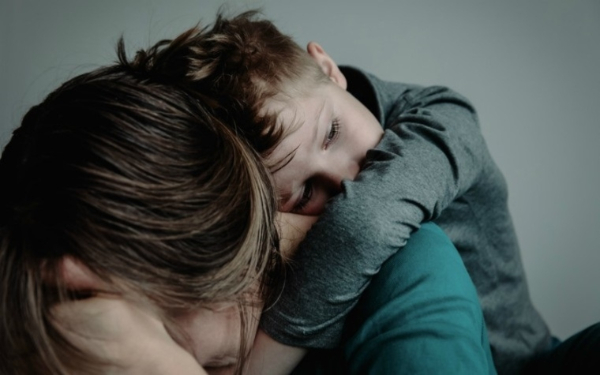

This article presents a few key considerations from Community Care Inform Children’s guide on supporting children and young people where parents are misusing drugs or alcohol. The full guide provides practice guidance on types of substance use, the impact of parental substance use on children, how to assess parental substance misuse and how to support the whole family. Inform Children subscribers can access the full guide here.
This guide was written by Jessica Roy, senior lecturer in child and family welfare and programme director of the BSc in childhood studies course at the University of Bristol.
Understanding the child’s experience
The short- and long-term impact of parental substance misuse on children can be significant. Understanding the child’s experiences is central when working with parental substance misuse.
It is important to bear in mind that children may know a great deal about their parent’s use of substances, despite best efforts to keep things hidden. Even very young children may know that ‘something’ is going on and can be sensitive to the shifts in their parent’s presentation, such as the changing sights and smells of the house or how their parents are responding to them and each other (Houmoller et al, 2011).
It may be difficult to directly ask the child about their parent’s substance misuse. The parent might not want you to, or might believe the child knows nothing, or the child might feel worried about telling a professional. In these situations, a good starting point is to assess what a ‘typical’ day or week looks like for the child.
For example, you could talk about who they see, what happens, who looks after them or who they go to for help if they need something or are scared. These kinds of questions may help to unpick what the child’s experiences are, and how safe and stable they feel home life is.
Tips for working with children
Below are recommendations for how to approach working with children affected by parental substance misuse. These recommendations have been developed from studies where researchers talked to children about what they wanted from professionals.
- Use a non-judgmental approach: Studies show that children can experience discrimination or stigma from professionals as a result of their parent’s substance misuse (Muir et al, 2022). Children are also very likely be aware of the shame and stigma that surrounds parental substance misuse. Professionals need to approach these conversations mindful of the language they use about substance misuse and the child’s parents/carers and the assumptions they may have made about the child’s experiences.
- Provide stability and consistency: Children affected by parental substance misuse may have experienced a great deal of inconsistency in their lives and may therefore be particularly affected by things like staff turnover. Aiming to ensure a stable and consistent professional figure in a child’s life is important. To create this stable relationship, there are important things a social worker can do such as:
-
- Booking visits ahead of time, making the child aware of the location and time and giving notice if things change and the visit is not possible.
- Not over-promising; ensuring that you follow through on what you say you will do (eg making a referral).
- Being honest about who you share information with and why, and what might happen as a result.
- Being clear about your role in their life, how long you might be in their life for and what might happen when you are no longer their social worker.
- Ensuring a managed ending which the child can prepare for.
- Use professionalism: Children value professionals who are non-confrontational in their approach (O’Connor et al, 2014; Houmoller et al, 2011) and who do not ‘quiz’ the child about their parent’s substance misuse (Muir et al, 2022). Children want professionals who are reliable and proactive in responding to disclosures made by them (Muir et al, 2022). Children also need to know that professionals are trustworthy and safe and that the information they share is safe. Some information children tell professionals may need to be written down or shared with other people, which requires professionals to be transparent about information sharing.
- Listen and understand: It is important that children are listened to, respected and believed. Children value flexibility in how professionals communicate and engage with them (Muir et al, 2022). Some children particularly value being able to just ‘sit’ in a safe place with a professional (eg in a teacher’s office) and not necessarily talk about anything. Children also note that the most supportive professionals tend to have a good understanding of parental substance misuse (Houmoller et al, 2011). If children have additional needs around communication, social workers need to give further consideration to ensure they are listened to and understood and ensure that their approach is appropriate to the child’s development and needs. Inform Children users can find additional information and advice can on this in these case studies from a specialist team on working with disabled children.
- Acknowledge and respect the child’s expertise: Children are experts in their own lives. Children may also have considerable strategies already in place to protect themselves and their siblings. These might include having a safe family member or friend to talk to or stay with, having a safe space in the house away from their parents, writing in journals or practising mindfulness (Muir et al, 2022). Children may also have coping strategies which are potentially harmful, for example, isolating themselves (Velleman and Templeton, 2007). When working with children, it is important to respect their expertise and potentially build on their protective strategies if it is appropriate to do.
- Support the whole family: Children report wanting practical and emotional support for them and their family. Practical support, such as financial support and help with day-to-day issues, may immediately improve a child’s life. Emotional support can be provided through one-to-one support, group work or specialist support in the local area. There are also useful websites which have resources for children affected by parental substance misuse. Children may also want support in understanding more about substance misuse. Many children report being frightened by their parent’s substance use, including worrying about them dying or being very unwell. Children do not necessarily have age-appropriate ways of finding out information about substance misuse. The signposting section in the full guide includes some resources which may be helpful to use when working with children and young people.
- Use holistic interventions: Interventions which work to help achieve best outcomes for children and families are:
-
- holistic, providing support for different issues in family life;
- integrated, with different professionals working collaboratively with the family and each other;
- long term, as substance misuse is a relapsing and remitting issue which is unlikely to be resolved quickly and without ongoing support;
- engaged with the whole family, with support available for the children as well as the adults in the family (McGovern et al, 2022).
Practice point
There are specialist support programmes for families operating in a limited number of geographic areas, including Option 2, M-Pact, Parents Under Pressure and Steps to Cope.
The Family Drug and Alcohol Court (FDAC) is probably the best-known programme and operates in some local authorities. It is a specialist court process for families who are at risk of their children going into the care system due to parents’ substance misuse. The parents receive specialist integrated support over a period, helping with all aspects of family life. The programme is underpinned by motivational interviewing approaches and has drug/alcohol testing as part of the assessment. An evaluation of FDAC, commissioned by evidence body Foundations, has shown it has a positive effect on family reunification.
Some substance misuse treatment services offer support for children and young people, so it is worth exploring the local offer. The NHS also offers support to pregnant women who may use drugs and alcohol via specialist midwives and health visitors.
In areas without specialist programmes, social workers may act as a case manager, linking the family into other support services. These may include substance misuse treatment services, domestic violence and abuse services, financial and practical help.
What to read next
References
Houmoller, K, Bernays, S, Wilson, S & Rhodes, T (2011)
Juggling Harms: Coping with Parental Substance Misuse
Muir, C, Adams, E. A, Evans, V et al (2022)
‘A Systematic Review of Qualitative Studies Exploring Lived Experiences, Perceived Impact, and Coping Strategies of Children and Young People Whose Parents Use Substances‘
McGovern, R, Newham, J, Addison, M, Hickman, M, Kaner, E (2022)
‘The effectiveness of psychosocial interventions at reducing the frequency of alcohol and drug use in parents: findings of a Cochrane Review and meta-analyses‘
O’Connor, L, Forrester, D, Holland, S & Williams, A (2014)
‘Perspectives on children’s experiences in families with parental substance misuse and child protection interventions’
Templeton, L, Velleman, R (2007)
Understanding and modifying the impact of parents substance misuse on children







 Bournemouth, Christchurch and Poole
Bournemouth, Christchurch and Poole  Hampshire County Council
Hampshire County Council  Oxfordshire County Council
Oxfordshire County Council  South Gloucestershire Council
South Gloucestershire Council  Wokingham Borough Council
Wokingham Borough Council  Webinar: building a practice framework with the influence of practitioner voice
Webinar: building a practice framework with the influence of practitioner voice  ‘They don’t have to retell their story’: building long-lasting relationships with children and young people
‘They don’t have to retell their story’: building long-lasting relationships with children and young people  Podcast: returning to social work after becoming a first-time parent
Podcast: returning to social work after becoming a first-time parent  How managers are inspiring social workers to progress in their careers
How managers are inspiring social workers to progress in their careers  Workforce Insights – showcasing a selection of the sector’s top recruiters
Workforce Insights – showcasing a selection of the sector’s top recruiters 

 Facebook
Facebook X
X LinkedIn
LinkedIn Instagram
Instagram
Comments are closed.